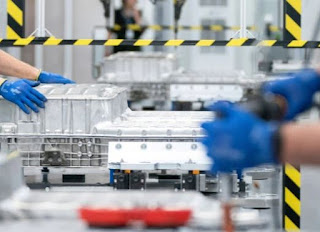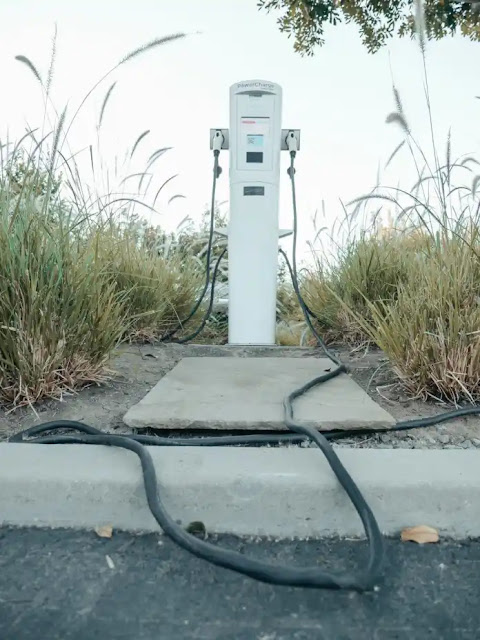public charging station can be set up by individuals or entities
According to new rules, Owners of electric cars and scooters can charge them at their homes, establishing a public charging station (PCS) with priority access to electricity from power utilities.
To establish a public charging station (PCS) will not require a licence and it can be set up by individuals or entities, provided they meet the standards drawn up by the power ministry and the Central Electricity Authority (CEA), according to the power ministry’s final guidelines and standards for charging infrastructure for EVs.
The guidelines, a copy of which has been seen by Mint, were issued on Friday by Anoop Singh Bisht, under secretary in the power ministry, to all Union ministries and departments and the chief secretaries of states and Union territories.
For residential users, the tariffs for charging will be the same as for domestic consumption of electricity. A PCS can levy a service charge, with a ceiling fixed by a nodal agency in each state.
The new guidelines aim to “proactively support creation of EV charging infrastructure in the initial phase and eventually create market for EV charging business.
The guidelines recommend that any person seeking to set up a PCS be provided connectivity on priority by the discom licensee in the area. The person may also obtain electricity from any generation firm through open access.
The guidelines also lay out technical requirements for a PCS: it should have an exclusive transformer with all related substation equipment including safety appliance, a 33/11KV line/cables with associated equipment including as needed for line termination/metering, adequate space for charging and entry/exit of vehicles, one or more electric kiosk/boards with installation of all the charger models and a tie-up with at least one online network service provider to enable advance remote/online booking of charging slots by EV owners. If a fast charging facility is also planned, the PCS should also have appropriate liquid-cooled cables for on-board charging of fluid-cooled batteries and appropriate climate control equipment for fast charging of batteries to be used for swapping. These conditions do not apply to private charging points owned by individuals or captive charging infrastructure set up by a firm for its own fleet of EVs.
The guidelines recommend setting up at least one PCS in a grid of 3km or one every 25km on both sides of roads and highways. There should be at least one fast charging station every 100km for long-range EVs or heavy-duty EVs such as trucks and buses. Existing fuel retail outlets run by public sector oil marketing firms (Indian Oil Corp. Ltd, Bharat Petroleum Corp. Ltd and Hindustan Petroleum Corp. Ltd) can be given priority status to set up PCSes on their premises.
India wants its automobile industry to progressively shift to electric vehicles as part of its strategy to fulfil its climate change commitments. As part of the commitments to the United Nations Framework Convention on Climate Change adopted by 195 countries in Paris in 2015, India has to cut its carbon footprint by 33-35% from its 2005 levels by 2030.
To establish a public charging station (PCS) will not require a licence and it can be set up by individuals or entities, provided they meet the standards drawn up by the power ministry and the Central Electricity Authority (CEA), according to the power ministry’s final guidelines and standards for charging infrastructure for EVs.
The guidelines, a copy of which has been seen by Mint, were issued on Friday by Anoop Singh Bisht, under secretary in the power ministry, to all Union ministries and departments and the chief secretaries of states and Union territories.
For residential users, the tariffs for charging will be the same as for domestic consumption of electricity. A PCS can levy a service charge, with a ceiling fixed by a nodal agency in each state.
The new guidelines aim to “proactively support creation of EV charging infrastructure in the initial phase and eventually create market for EV charging business.
The guidelines recommend that any person seeking to set up a PCS be provided connectivity on priority by the discom licensee in the area. The person may also obtain electricity from any generation firm through open access.
The guidelines also lay out technical requirements for a PCS: it should have an exclusive transformer with all related substation equipment including safety appliance, a 33/11KV line/cables with associated equipment including as needed for line termination/metering, adequate space for charging and entry/exit of vehicles, one or more electric kiosk/boards with installation of all the charger models and a tie-up with at least one online network service provider to enable advance remote/online booking of charging slots by EV owners. If a fast charging facility is also planned, the PCS should also have appropriate liquid-cooled cables for on-board charging of fluid-cooled batteries and appropriate climate control equipment for fast charging of batteries to be used for swapping. These conditions do not apply to private charging points owned by individuals or captive charging infrastructure set up by a firm for its own fleet of EVs.
The guidelines recommend setting up at least one PCS in a grid of 3km or one every 25km on both sides of roads and highways. There should be at least one fast charging station every 100km for long-range EVs or heavy-duty EVs such as trucks and buses. Existing fuel retail outlets run by public sector oil marketing firms (Indian Oil Corp. Ltd, Bharat Petroleum Corp. Ltd and Hindustan Petroleum Corp. Ltd) can be given priority status to set up PCSes on their premises.
India wants its automobile industry to progressively shift to electric vehicles as part of its strategy to fulfil its climate change commitments. As part of the commitments to the United Nations Framework Convention on Climate Change adopted by 195 countries in Paris in 2015, India has to cut its carbon footprint by 33-35% from its 2005 levels by 2030.


